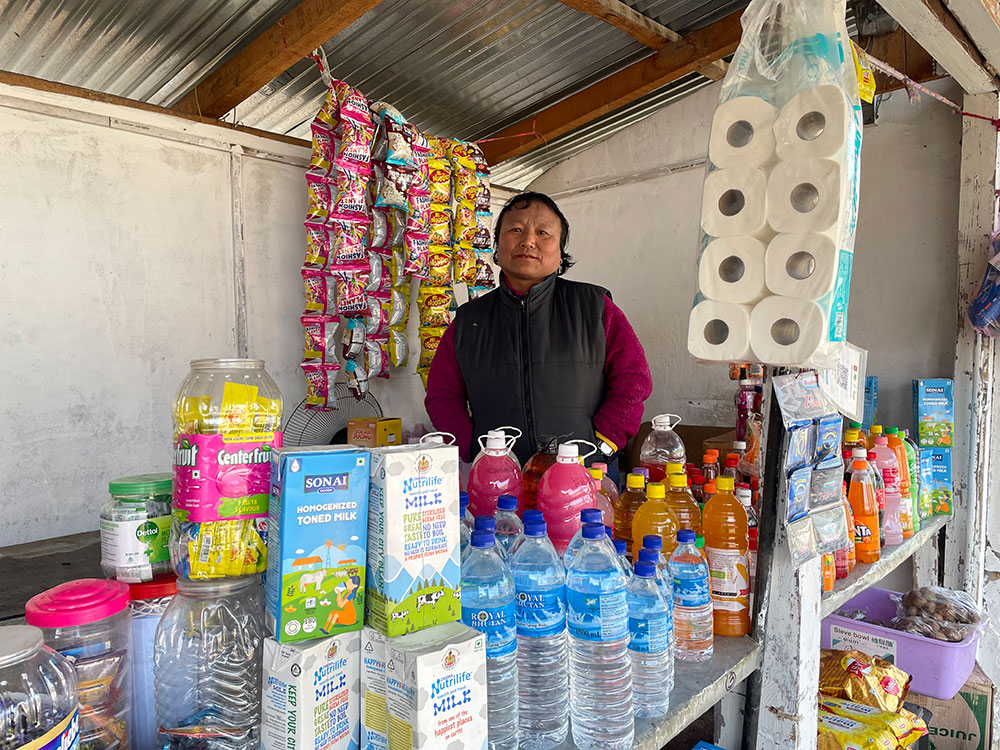Sherab Lhamo
A group of women shout ‘Thub thub, momo momo!’ outside Jigme Dorji Wangchuck National Referral Hospital in Thimphu.
Among them, Phub Lham, aged 62, has been selling thukpa, momo, and other packaged food for the past 12 years.
But she didn’t choose to sell food on the street.
When Phub Lham was 20 years old, she came to Thimphu to get away from her single mother in Wangdue. However, her stepmother and stepsister weren’t welcoming when she stayed with her father in Thimphu. So, she started a selling alcohol with a woman, who welcomed Phub into her home. Eventually, one of her customers became her husband.
However, the marriage ended in divorce, leaving her with three daughters and memories of an alcoholic and abusive husband. With limited education, her only option was to sell food on the street.
The business went well, except for the officials from Thimphu Thromde who would chase her and other street hawkers, throwing away their food items into the garbage truck.
During one of these encounters with a street hawker from the public city bus stand who suggested approaching the Bhutan Association of Women Entrepreneurs (BAOWE) for support. Phub Lham’s daily struggle with Thimphu Thromde finally ended as she became part of the women entrepreneurs’ group, receiving support and even opening a bank account.
“Every woman you see here can now sell in peace because of BAOWE,” said Phub Lham.
“Selling on the streets used to feel like a cat-and-mouse game. If the Thromde officials saw us selling goods, they would confiscate them and throw them away. So, in the past, we had to run away whenever we saw them,” said Phub Lham.
Phub said that BAOWE also helped them save money monthly by allowing them to deposit at BAOWE’s bank and keep records in a savings book.
Thanks to the support Phub Lham received, she was able to send her children to school, and today, all of them are employed.
“My children provide money and discourage me from working, but I would rather earn my own,” she said.


